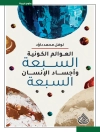In ‘The Mystique of Enlightenment, ‘ U. G. Krishnamurti offers a provocative exploration of the elusive nature of enlightenment, dismantling conventional spiritual paradigms with an incisive critique that reflects his unique philosophical outlook. Employing a conversational and accessible prose style, Krishnamurti eschews dogma in favor of a raw examination of the self, identity, and the psychological constructs that bind us. This text stands as a challenge to the romanticized concept of enlightenment, presenting it not as an ultimate attainment, but rather as a persistent, often disconcerting exploration of one’s own mind, set against the backdrop of Eastern philosophical traditions and Western existential thought. U. G. Krishnamurti’s intellectual journey is deeply rooted in his own radical transformation and rejection of established beliefs, which fueled his desire to strip away the superficial layers of spiritual teachings. Having experienced a profound shift in consciousness, he sought to communicate the nuances of this experience, devoid of the metaphysical embellishments often associated with spiritual awakening. His background, which intermingled with theosophical influences and a critical approach to societal norms, profoundly informed his perspectives, establishing him as a distinctive voice in contemporary spiritual discourse. For those seeking a deeper understanding of enlightenment that transcends platitudes and comfortable notions, ‘The Mystique of Enlightenment’ is an essential read. Krishnamurti’s unapologetic examination serves both as a philosophical inquiry and a practical guide, inviting readers to question their assumptions and engage with their innermost selves. This book will resonate with anyone poised at the intersection of spirituality and existential inquiry, urging a reevaluation of what it truly means to be enlightened.
เกี่ยวกับผู้แต่ง
Uppaluri Gopala Krishnamurti, commonly referred to as U.G. Krishnamurti, was a thinker and philosopher who diverged sharply from mainstream spiritual traditions. Born on July 9, 1918, in Machilipatnam, India, and dying on March 22, 2007, in Vallecrosia, Italy, he carved a unique philosophical niche in questioning the very nature of enlightenment and rejecting conventional wisdoms of the time. Despite sharing a name with the renowned Jiddu Krishnamurti, with whom he held discussions, U.G. established a distinct identity, often dismantling the expected narrative for spiritual teachers and seekers. His seminal work, ‘The Mystique of Enlightenment’ (1982), offers a challenging and unorthodox perspective on the quest for spiritual enlightenment. In it, U.G. critically dissected the traditional concepts of enlightenment and systematically dispelled the illusions surrounding spiritual experiences and practices. He did not position himself as a guru or a teacher; instead, he was known for his candid and often abrasive critiques of the spiritual marketplace and the disillusionment with the pursuit of ‘spiritual progress.’ His contributions to the discourse on consciousness and the human condition have received both acclaim and criticism for their radical approach. U.G. Krishnamurti’s literary style is characterized by a direct, no-nonsense tone devoid of the ornaments that typically characterize spiritual literature.











